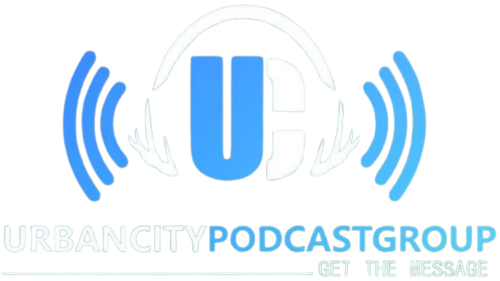Key Takeaways
- Diversity is the backbone of American culture—urban communities drive innovation, music, business, and activism.
- Financial empowerment and ownership are key—economic growth is happening through entrepreneurship, wealth-building, and political engagement.
- Health and wellness are becoming cultural priorities—mental and physical health discussions are reshaping communities, with a push toward sustainability.
America. Land of the free, home of the brave—at least that’s what the textbooks say.
But let’s be real, U.S. culture isn’t just about fireworks on the Fourth of July or a hot dog at a baseball game.
It’s a layered, complex, and ever-evolving mix of influences, traditions, struggles, and triumphs.
If you really want to understand American culture, you have to dig deeper—into its music, its communities, its economy, its resilience.
And when you look through the lens of urban life, the heartbeat of America becomes even more clear.
A Culture Built on Diversity
From day one, America has been a melting pot—or maybe a pressure cooker—of cultures, ideas, and ambitions.
Every wave of immigrants brought their own traditions, languages, and ways of life.
But while mainstream narratives often highlight the European influence, the truth is that Black, Latinx, Asian, and Indigenous communities have shaped U.S. culture just as much—if not more.
Think about it.
Jazz, hip-hop, rock & roll?
Black culture.
Street food, murals, and Spanglish slang in everyday speech?
Latino influence.
The rise of meditation, mindfulness, and fusion cuisine?
Asian and Indigenous roots.
The strength of this country doesn’t come from one dominant culture—it comes from the mix.
And in today’s America, urban centers are where that blend happens most visibly.
The Power of the Black Experience in American Culture
Let’s talk about the Black experience, because you simply can’t discuss American culture without it.
From the blues that told stories of pain and survival to the hip-hop that speaks truth to power, Black America has given the world a rhythm, a voice, and a blueprint for resilience.
But it’s not just music. Fashion, slang, sports, activism—so much of what becomes mainstream starts in Black communities.
Whether it’s sneaker culture influencing billion-dollar brands or social movements forcing national conversations, the cultural weight of Black America is undeniable.
At the same time, there’s a constant push and pull. The country loves Black culture but often tries to separate it from Black people.
The pattern repeats itself: Black innovation leads, the mainstream follows, and eventually, the originators get erased from their own creation.
But the beauty of urban culture is that it keeps evolving, keeps reinventing, and keeps reclaiming its power.
Money Moves: The Economy and the Hustle
If there’s one thing that defines American culture, it’s the hustle.
Whether you’re an entrepreneur building a business from the ground up, an artist trying to make it big, or a single parent juggling two jobs, the grind never stops.
But here’s where reality kicks in.
The American Dream—the idea that anyone can make it if they work hard enough—is not an equal playing field.
Generational wealth, redlining, wage gaps, and systemic barriers make it clear that some people have had a head start while others are still waiting at the starting line.
Still, communities of color have always found ways to build their own economies.
From Black Wall Street in Tulsa to modern-day urban business movements, the culture of self-sufficiency is strong.
Look at the rise of Black-owned banks, tech startups, and real estate investments.
The blueprint is there—it’s just about making sure more people have access to the tools to use it.
That’s why financial literacy is becoming a bigger conversation than ever. Ownership is power.
Real estate, stocks, entrepreneurship—whatever the path, the goal is the same: control over your own future.
As urban communities continue to push for economic growth, expect to see more businesses, more partnerships, and more wealth-building strategies that redefine what success looks like.
Politics and the Pulse of the People
America’s culture isn’t just shaped by entertainment and money—it’s deeply tied to politics.
In urban communities, politics isn’t just something you watch on the news. It’s personal.
When policies affect housing, education, healthcare, and policing, real people feel the impact every single day.
That’s why activism has always been a central part of American culture.
From the civil rights movement to today’s voter mobilization efforts, urban communities have always been on the front lines of change.
One of the biggest cultural shifts in recent years?
More people realize that their vote actually matters.
Gone are the days when young people ignored the ballot box. Now, social media is fueling a new wave of political engagement—one where voices from the block are just as loud as those from Capitol Hill.
And let’s be clear—politics is more than just elections. It’s the conversations in barbershops, the organizing in churches, the debates at family cookouts.
It’s about understanding how power works and making sure it works for you.
Health, Wellness, and Breaking Generational Cycles
Health is wealth—literally. And if there’s one shift happening in U.S. culture right now, it’s the focus on wellness in urban communities.
For too long, things like mental health, fitness, and nutrition were seen as luxuries. But now? People are reclaiming their health. More gyms in the neighborhood, more discussions about therapy, more emphasis on plant-based diets and holistic healing.
At the same time, access is still an issue.
Food deserts, underfunded healthcare systems, and environmental factors mean that the fight for health equity is far from over.
But that’s why community-driven solutions are popping up—Black-owned wellness brands, farm-to-table programs, free therapy resources.
Because when the system doesn’t serve you, you build your own.
The Future of U.S. Culture: What’s Next?
So, where is all of this headed?
One thing’s for sure—the old rules don’t apply anymore.
The next generation is rewriting the script on what it means to be American.
- More diversity in leadership. Expect to see more CEOs, politicians, and cultural leaders coming from communities that were once overlooked.
- A stronger push for ownership. Real estate, digital assets, businesses—more people want control over their own financial future.
- The power of social media. Trends start in urban communities and spread faster than ever. If you’re not tapped in, you’re already behind.
- A deeper emphasis on mental and physical health. Because true success isn’t just about money—it’s about a balanced, sustainable life.
Final Thoughts: The Culture Is Ours
U.S. culture isn’t just something that happens on TV or in history books. It’s alive. It’s evolving.
And it belongs to the people who create it.
If you want to understand America, look at the communities shaping the future.
The entrepreneurs, the artists, the activists, the families grinding every day to build something better.
That’s the real culture. That’s the real America.
And as long as the people keep pushing forward, the future is limitless.











4 Responses
Informative stuff! Exposure to diverse cultures, ideas, and experiences fosters creativity.
The future looks promising. Younger generations are taking charge and it’s amazing to watch.
This is good and we need to continue pushing forward with this:
More diversity in leadership. Expect to see more CEOs, politicians, and cultural leaders coming from communities that were once overlooked.
A stronger push for ownership. Real estate, digital assets, businesses—more people want control over their own financial future.
The power of social media. Trends start in urban communities and spread faster than ever. If you’re not tapped in, you’re already behind.
A deeper emphasis on mental and physical health. Because true success isn’t just about money—it’s about a balanced, sustainable life.
Good stuff! I’m actually taking a course on Multiculturalism. There is so much information out here for our future generations to stop this cycle of generational curses by recognizing the patterns and by consciously choosing to not perpertuate them and it starts with us. Thank you for this knowledge My Brother!